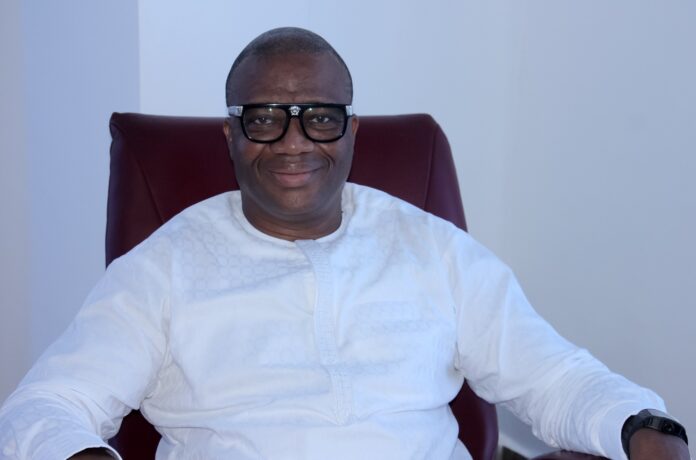Monrovia, Liberia – June 29, 2025 — In a compelling and unapologetic keynote address delivered at the graduation ceremony of the first cohort of Associate Degree Students from a local university, the political leader of the Movement for Progressive Change (MPC), Simeon Freeman, has issued a clarion call for systemic reforms to rescue Liberia from its entrenched socio-economic and political challenges.
Freeman, known for his outspoken views on governance, used the occasion to outline a vision for a reimagined Liberia—one that rejects political complacency and tribal biases and embraces accountability, development equity, and youth-driven transformation.
A Nation in Decline: Education and Communication under Threat
Freeman opened with a critical assessment of Liberia’s declining standards in education and communication, citing the growing normalization of colloquial English in formal settings as symbolic of deeper societal deterioration.
“There was a time when ELBC was the only radio station, and they spoke proper English,” he recalled. “Today, even newscasters are reading in simplified Liberian English.”
According to Freeman, poor communication not only affects personal development but undermines national discourse and professionalism. He urged the graduates to become ambassadors of effective communication, warning that clarity in expression is foundational to leadership and progress.
Tribal Politics and Voter Apathy
Delving into Liberia’s persistent political dysfunction, Freeman condemned the widespread culture of tribalism and emotional voting, which he argued perpetuates incompetence in public service.
“Some people vote based on tribe or personal connection, not competence,” Freeman said. “If someone can’t manage $10,000 privately, how can they manage $2 million for a nation?”
He drew inspiration from Senegal’s election of a young, reform-minded president to challenge Liberian youth to raise their expectations of leadership and to prioritize substance over sentiment. His message was clear: transformational leadership begins with informed and intentional choices at the ballot box.
Development Imbalance and Centralized Power
A central theme of Freeman’s address was the glaring imbalance in Liberia’s development priorities. He criticized the excessive concentration of infrastructure and services in Monrovia while rural counties remain chronically neglected.
“Nearly 30% of the population lives in Monrovia. We cannot grow as a nation if development stays in the capital,” he said. “We have rivers, land, and talent. Why are we still importing rice and struggling for electricity?”
He advocated for a bold shift toward decentralization, encouraging investment in agriculture, energy, roads, and technology across all 15 counties. Without this shift, he warned Liberia risks permanent underdevelopment and regional inequality.
Governance Waste and Public Sector Reform
Freeman’s critique extended to the nation’s public expenditure. He pointed to the stark disconnect between bloated government salaries and the absence of basic social services in communities.
“One lawmaker earning $15,000 a month receives $180,000 a year, while people in their districts suffer without healthcare, electricity, or paved roads,” he said. “Where is the accountability? Where is the development?”
Calling for sweeping governance reforms, he proposed slashing official salaries and limiting the terms of the president and lawmakers to four years, to foster performance-based leadership and reduce political entrenchment.
He also questioned the operations of state institutions such as the National Elections Commission, accusing it of inefficiency and wasteful spending on idle personnel.
The Collapse of Industry and Economic Sovereignty
Freeman lamented Liberia’s economic regression, particularly the decline of local industries and the growing dependence on imports for basic goods.
“In the 1980s, we had functional factories. Today, even rice—the nation’s staple—is controlled by a handful of foreign individuals,” he said. “What happened to our industries? How did we move from producing to depending?”
He described the current economic model as unsustainable and called for a revival of Liberia’s manufacturing base to restore national pride and economic resilience.
A Final Charge to the Next Generation
In his closing remarks, Freeman charged the graduates with a moral responsibility to challenge the status quo and lead a new era of national transformation.
“We must demand accountability. We must set new standards. We must think beyond ourselves. That is the only way Liberia will rise,” he declared.
The address was met with resounding applause and left a deep impression on students, faculty, and invited guests. As Liberia continues to navigate its post-conflict recovery, Freeman’s address resonated as both a wake-up call and a roadmap for a nation in urgent need of change.



